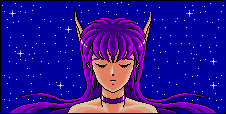The first thing is to decide on a goal. Without a goal, itís hard to stay motivated, and losing interest makes it hard to improve. The smaller the goal, the better. If you aim too high, itíll feel impossible and thereís a risk of losing motivation midway, when it doesnít feel like youíre getting any closer to the goal. If you look at a top playerís match and try to be like them, youíll end up disappointed. It sounds harsh, but you have to realise that youíre a beginner and have tiny goals and slowly enjoy the game at your own pace. Thatís the shortest way to get better. Even the top players were all bad at first, so donít hurry.
The next thing is to be able to control your character freely. For example in Guilty Gear, if youíre told to do an air dash, thereís a huge difference in being able to and not being able to perform it. If youíre good at all the basic motions, itís easier to pick new things. When youíre being taught new things, if you can execute them immediately, your rate of learning will speed up.
How to improve execution then? Only by playing around with the controller. Itís okay to play tons of matches, and itís okay to do tons of training mode, as long as youíre doing something with the controller. As a side note, when I (machaboo) was playing the Street Fighter series, I used a character with a mash-special as a sub character, but I couldnít do the special move well at all. After I understood the right way to do it, Iíd even shadow train it whenever I had a spare moment in the train or wherever and tap the timing against my leg. And the next time I played, I was able to do it. This kind of image training is also important.
Lastly, understanding the opponentís feelings and what theyíre thinking. This is the hardest part, but also the most important part. You can learn things about your opponent by looking at the screen. For example, there are projectile specials in fighting games, like hadouken. To counter hadouken, you have to jump forward. Consider the following situation, where your opponent jumped forward after two hadoukens happened in a match. Thinking about why did your opponent jump forward, in about 8 or 9 cases out of 10 the reason is that they donít want to block the hadouken, they want to jump over to beat it. The hadouken example is simple, but understanding the opponentís thoughts from their movement works for all kinds of situation in a match. If you can understand the opponent based on their movement like this in different situations, youíll excel in mind games, the game will be more fun and youíll definitely get stronger. If you can understand what the opponent is thinking, but they canít understand what youíre thinking, youíre at a huge advantage, controlling them like theyíre on your palm becomes easy. When thereís a difference in skill and a player gets beaten really hard, this is the main reason.
By the way, itís often said that youíll get stronger faster by using a standard character. The reason for that is that you get to play the mind games and learn them. If you use peculiar characters, and win because the opponent didnít understand your character, there are no mind games involved. In this case, you wonít be trained in mind games, and itíll hinder your ability to get strong. Standard characters are easy to understand, so basically you need to play at least some sort of mind games with them to win. The reason why I recommend standard characters to new players apart from them being easy to control, is this.
Grasping the opponentís intentions from the moves they used requires lots of knowledge and experience, so you wonít be able to do it immediately, but in the end that is the most important thing in fighting games.
So after growing accustomed to the controls, playing while paying attention to what the opponent is thinking about is the way to go. If you play against a strong player, put your intentions into the moves and use them. Youíll definitely see them answer to your intentions, and that is a lot of fun.
After learning these things, you just have to think, think and think while playing and having fun. The victory condition In fighting games is that you have to beat the opponent in 99 seconds, or have more health than them after 99 seconds. Keep that in mind, and think while you play. Having fun makes playing easier, and getting better easier.
Also, these days itís very easy to receive advice from top players. While itís of course not bad to receive advice, if you rely too much on receiving advice, your own thinking wonít grow up. Before asking someone for advice, itís important to think it through the best you can by yourself.





 Reply With Quote
Reply With Quote

Connect With Us